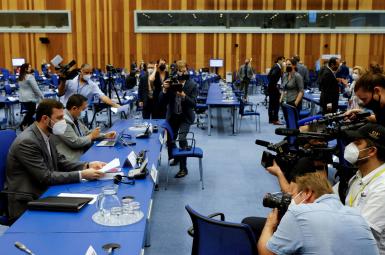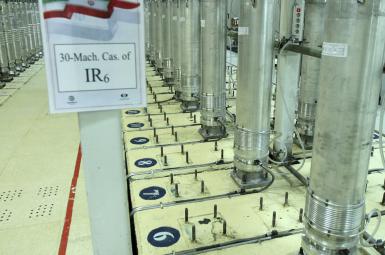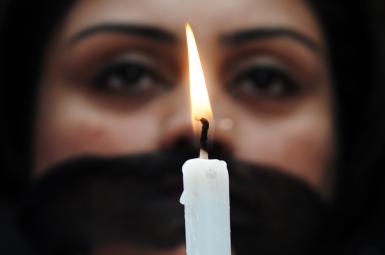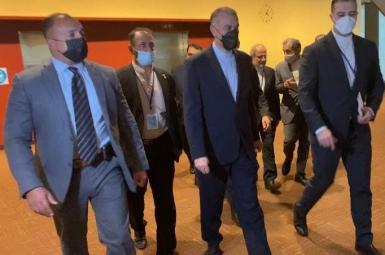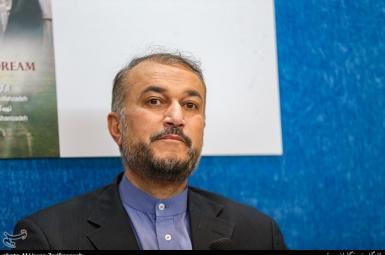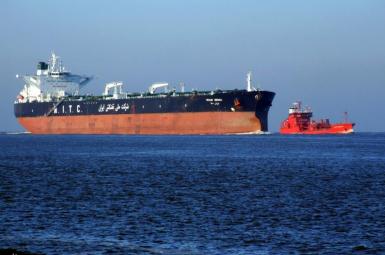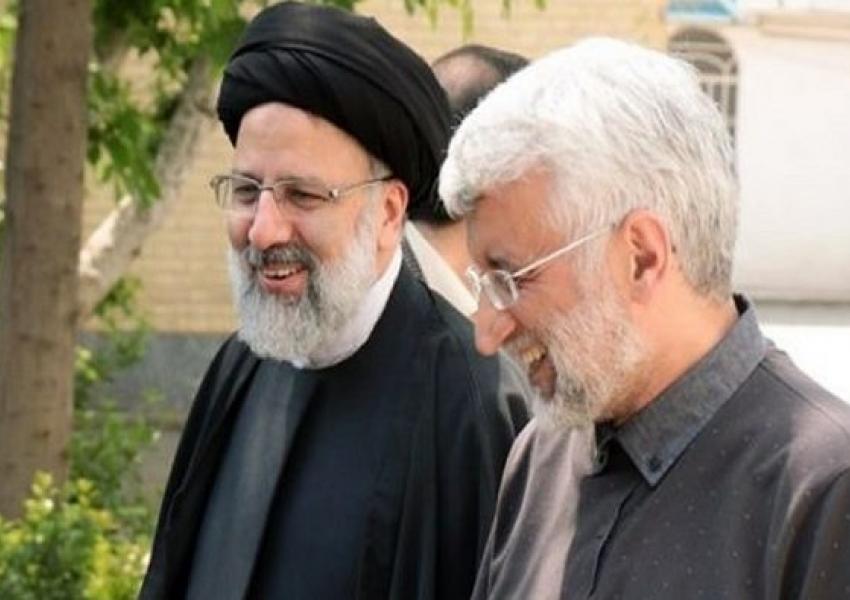
With Raisi Plans ‘Murky,’ Iran Nuclear Talks Strained As Well As Stalled
The break in talks over Iran’s nuclear program until President-elect Ebrahim Raisi (Raeesi) takes office in August has led this week to discrete verbal jousting between the United States and Iran. It is already over three months since talks began in Vienna aimed at reviving Tehran’s 2015 agreement with world powers, the JCPOA (Joint Comprehensive Plan of Action).
Reuters Friday quoted a US official that Iran was being “very murky” over its intentions while confirming – as reported by the Wall Street Journal July 19 – that the Biden administration was considering tougher action against those, notably China, buying Iranian oil in defiance of unilateral US sanctions. In speaking to Reuters of a “world in which the prospect of an imminent return to the JCPOA seems to be vanishing,” the official was ambiguous as to whether US would squeeze Iran’s oil exports to secure its return to the JCPOA or for a wider purpose.
Reuters also quoted an Iranian official who suggested a new negotiation team appointed by Raisi would start afresh. "They want their own terms and conditions, and they have more demands like keeping the 60 percent enrichment or chain of advanced centrifuges and not dismantling them as demanded by Washington," the official said.
This is a far cry from the focus in the Vienna talks on which sanctions the US would need to remove and how the Iranian nuclear program might be bought back within JCPOA limits. While ‘expert groups’ have spent long sessions discussing ambiguities in Vienna, there is little ambiguity over uranium enrichment, which is limited to 3.67 percent by the JCPOA. Iran resumed enriching to 20 percent in January, and started small-scale enrichment to 60 percent after the Natanz attack.
New terms and conditions
Even before any new “terms and conditions,” the ambiguities in reviving the JCPOA have been challenging. The Trump administration levied sanctions supposedly over ‘human rights’ while asserting they would complicate any attempt to revive the JCPOA. Iran’s nuclear program has not just expanded since 2019 but changed in quality – both in terms of progress in research and by using more advanced centrifuges, some of which replaced machines damaged by the April 11 attack on the Natanz enrichment facility, widely blamed on Israel.
The role of Iran’s chief negotiator in Vienna, deputy foreign minister Abbas Araghchi, is now is doubt. Reuters quoted another Iranian official who said it was unclear if he would be replaced.
While Raisi said during the presidential election he would support reviving the JCPOA if in the people’s interests, many of his supporters have been long-term critics of the deal. Saeed Jalili, who stood down as a presidential candidate in Raisi’s favor, is remembered in European diplomatic circles for hectoring them as Iran’s nuclear negotiator 2007-13. There has been speculation that Jalili might join Raisi’s foreign-policy team.
European JCPOA signatories – France, Germany and the United Kingdom – have edged closer to the US with the replacement of Donald Trump by President Joe Biden. But while the Europeans remain keen to hold Biden to his pledge to revive the JCPOA, they have become increasingly alienated by Iran’s expansion of its nuclear program.
The weight of China
Russia has concentrated criticisms on the US, the party − Moscow insists − that broke the 2015 agreement after backing it at the United Nations Security Council. Beijing, like Moscow, has called on both Washington and Tehran to return to the JCPOA, but its economic ties with Iran gives its role additional weight.
China’s oil imports from Iran have grown from near zero in the early months of Trump’s ‘maximum pressure’ to as much as 500,000-1 million barrels a day, with shipments and payments variously disguised. China’s 25-year strategic partnership with Iran signed in March is not just a backdrop for buying nearly a third of Iran’s total exports but part of its $4-trillion Belt and Road initiative through which is plans to reach 60 percent of the world population.
On Sunday, the official Chinese news agency Xinhua stressed Beijing’s readiness to work with the Raisi administration “to carry forward the fine traditions of mutual trust and mutual support between the two countries…continue jointly opposing unilateralism and bullying behavior, [and] firmly uphold multilateralism…”
